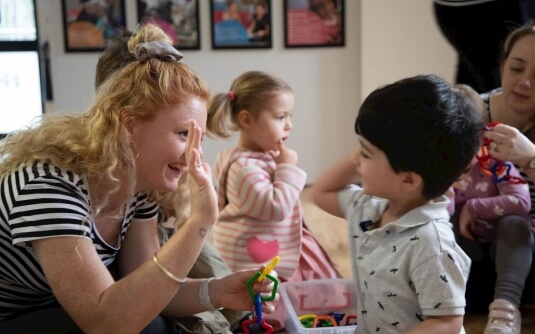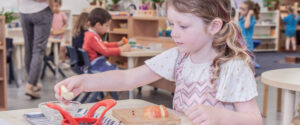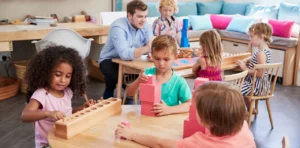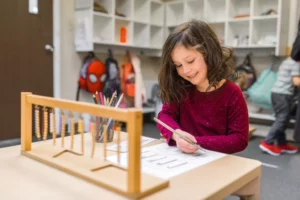The development of social skills forms a cornerstone in a child’s early growth. Childcare centers, playing a significant role, serve as a nurturing environment where children can learn, practice, and hone these crucial abilities.
The Importance of Social Skills in Child Development
Social skills are vital in helping children communicate their feelings, build relationships, and interact harmoniously with others. These abilities form the bedrock for future personal and professional relationships, shaping the child’s interaction with the world.
Childcare as a Social Skills Laboratory
Childcare centers are more than a safe haven for children while parents work; they are social laboratories. Here, children encounter diverse experiences, helping them understand social norms, empathize with others, and learn to resolve conflicts.
Facilitating Peer Interaction: The Cradle of Social Development
Interaction with peers forms the cornerstone of social development in childcare centers. The peer group presents various opportunities for children to learn teamwork, share, negotiate, and understand others’ perspectives.
Role Play: A Fun Way to Learn Social Etiquette
Role-play activities are an excellent way for children to learn about social roles and responsibilities. By enacting different scenarios, children learn to communicate effectively, solve problems, and understand the nuances of social etiquette.
Group Activities: Fostering Teamwork and Collaboration
Group activities form a significant part of the childcare curriculum. Through these activities, children learn to work as a team, cooperate with others, and develop a sense of community, which are integral elements of social skills.
Guided Play: Encouraging Communication and Expression
Guided play sessions in childcare centers foster an environment where children can express themselves freely. These sessions encourage communication, helping children articulate their thoughts, ideas, and feelings effectively.
Promoting Emotional Intelligence: Understanding and Managing Emotions
Childcare centers also help children develop emotional intelligence. By understanding and managing their emotions, children learn empathy, compassion, and emotional self-regulation, all vital elements of healthy social interactions.
Parental Involvement: Reinforcing Social Skills at Home
While childcare centers play a pivotal role in social skill development, parental involvement is equally essential. We encourage parents to reinforce these skills at home, providing guidance and opportunities for social interaction.
The Long-Term Benefits: A Foundation for Future Success
Social skills learned during early childhood have long-term benefits. They form the foundation for successful personal relationships, academic performance, and professional success in the future.
In conclusion, our approach at our childcare centers revolves around nurturing social skills. Through peer interactions, role play, group activities, guided play, and emotional intelligence lessons, we strive to develop well-rounded individuals capable of thriving in social environments.










